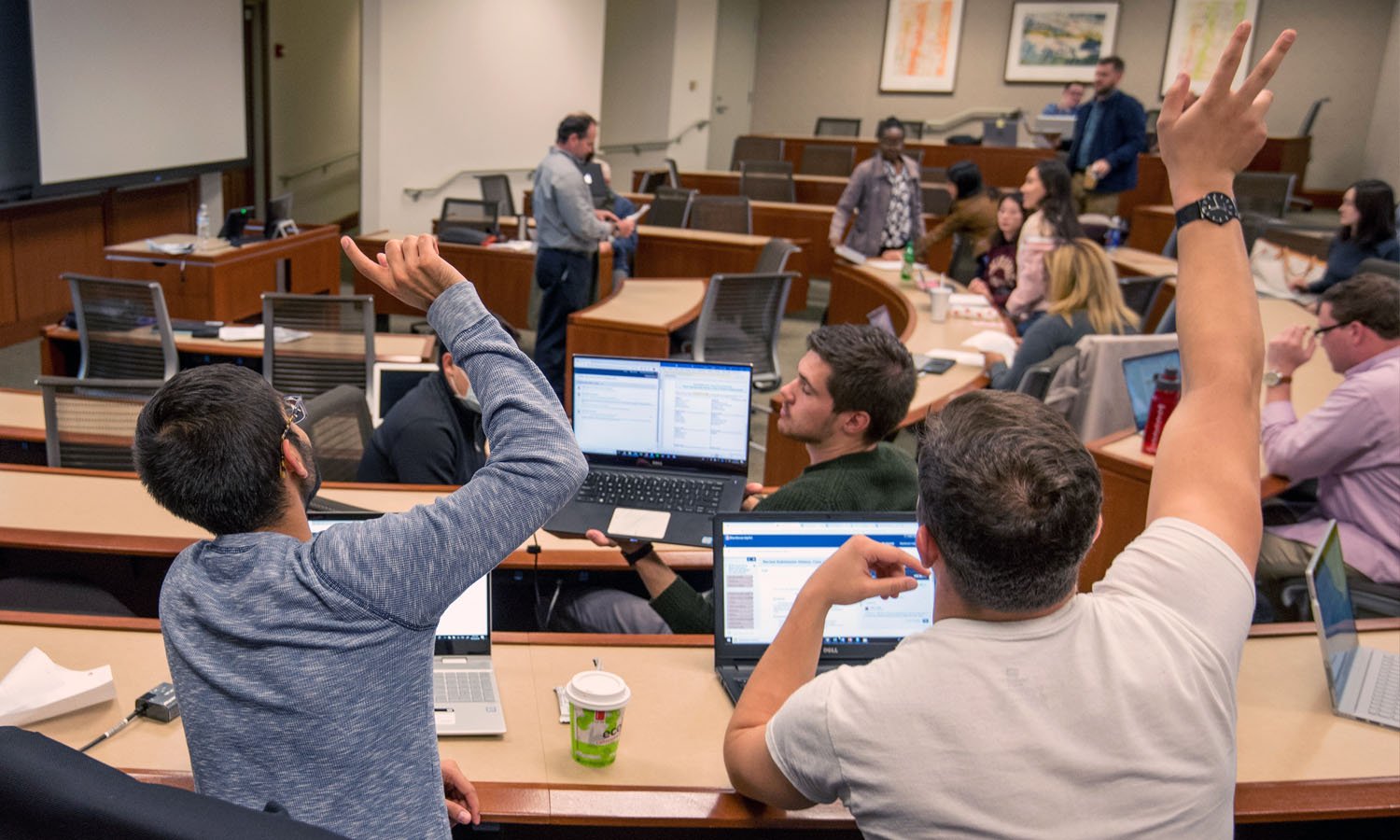Kogod's online MS in International Relations and Business program prioritizes collaboration with student-centered learning, experienced faculty, and access to career development services, tutoring, and a business professionalism center. Innovative technology and live, seminar-style classes with a maximum of 15 students offer an immersive experience.
American University's MS in International Relations & Business Online
Master a unique skill set and deep understanding of how the global economy, policy environment, and business strategy work collectively.
No GRE or GMAT required
12-18 monthS to complete
automatically considered for scholarships of up to $30,000
AACSB-Accredited
Download the Brochure
The online MS in international relations and business program prepares professionals to solve complex business challenges across borders and cultures. While honing your business skills, you will learn strategies to successfully lead your organization in the complex global ecosystem.
#8
Kogod is proud to have partnered with American University's School of International Service which was ranked No. 8 policy school worldwide by Foreign Policy magazine.#16
The Kogod School of Business is consistently ranked among the top business schools for international business. In 2022, US News & World Report ranked our programs No. 16 in the US.1+1
Through the immersion and capstone project, students experience global business hands-on while collaborating on group projects, visiting businesses and organizations, and exploring the host city's culture.12-18
Earn a degree at your own pace! Students have flexible options for full-time or part-time study and can earn the entire 36 credits for the degree in as few as 12 months.Two
You'll have two electives to further specialize in your area of interest. You'll be able to choose from international finance, business insights through analytics, management of organizations and human capital, or marketing management.
Career-Advancing Skills
The online MS in international relations and business program is designed to provide professionals with practical business strategies that will help their organizations make effective multinational decisions and navigate the global economy.
- Those with a business background will learn to apply skills with an understanding of international cultures and contexts.
- International affairs professionals will learn to approach issues from a business perspective.

The Best of Campus Delivered Online
The MS in international relations and business is delivered through a versatile format that features:
- Live, online classes hosted by renowned AU professors.
- Self-paced coursework that can be completed 24/7.
- Networking opportunities with our extensive alumni base in Washington, DC, and around the world.
- An in-person immersion experience in a global business hub.
When choosing which business degree is the right fit, applicants should consider their career goals and how they plan to use the skills learned through the program. The Kogod School of Business currently offers an online MBA program in addition to the online MS in international relations and business program.
Master's in Business Administration
Students should choose this path if they are seeking a more traditional business degree and want to advance skills in management, strategy, finance, accounting, leadership, marketing, and operations.
MS in International Relations & Business
Students should choose this path if they want to focus on the same core business skills as an MBA degree but use those skills in an international context, such as working on international assignments or influencing global policy.